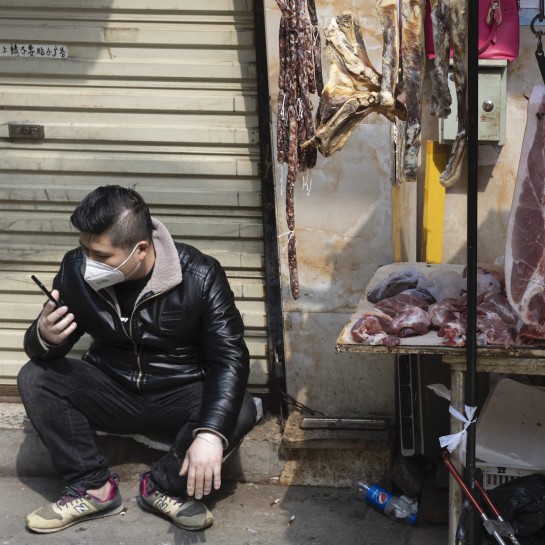Washington Examiner | Wet Markets in Wuhan Reopened a Year Ago. Have They Changed?

One year ago, wet markets in Wuhan, China, where the COVID-19 virus is thought to have originated, reopened for business as we struggled to find our way through the realities of what shutting down meant for the U.S. economy and its people. Thankfully, we are resilient and adapted to a new way of living and working.
As vaccination rollouts ramp up and the public returns to normal life, however, we must not put the past 15 months in the rearview mirror. Instead, we must ask: What, if anything, has changed? Have the necessary precautions been taken to prevent another pandemic? Are we safer than we were? The answer, sadly, is no. And just as wet markets around the world are open for business, so, too, is the door for the next supervirus.
COVID-19 can be traced back to the fracturing of the human-animal social contract, in which people trade in illegal wildlife and animals are slaughtered without basic humane practices, let alone necessary biosecurity protocols to help prevent the spread of disease.
Wet markets, such as the one where the first cluster of COVID-19 was detected, are breeding grounds for disease and sickness. Myriad unique animal species are kept in close quarters and stacked atop one another in cages where they languish amid unsanitary refuse, urine, and blood. The biosecurity failures at wet markets are inseparable from their inhumanity, and regulations governing the humane care of animals in such markets are nonexistent.
Global leaders must work diligently to ensure that open-air markets adhere to evidence-based standards for animal welfare. Even if a new contagion does not originate in a wet market, these epicenters provide the ideal venue for the spread of zoonotic diseases.
While wet markets are some of the most visible symptoms of the broken social contract, they are just a part of a much larger, multifaceted illness. Tugging at the threads reveals a massive network of animal cruelty and abuse.
While COVID-19 likely originated in a horseshoe bat, as many scientists suspect, then it was probably transmitted to humans through another species such as the pangolin, a small, scaly mammal that lives in parts of Africa and Asia. While pangolins are relatively unknown to the public, this creature is the most trafficked mammal in the world and supposedly imbued with mystical healing powers capable of curing everything from split ends to sexual dysfunction. To put pangolins’ plight in perspective, a 2019 seizure on the island of Borneo uncovered a shocking 30 metric tons of black-market pangolin products, among them some 1,800 boxes of frozen pangolins.
The illegal wildlife trade, worth $23 billion, is the world’s fourth-most valuable black-market industry and finds its way not only into medicine cabinets around the world but onto dinner plates as well. And when these illegally captured wild animals are butchered and consumed, we are all put at risk.
A year ago, many thought we were going home for a few weeks. Fifteen months later, we think we are going back to normal in a few weeks. My hope is the latter comes true. When we do go back to normal, I also hope the hard questions about how we can prevent the next disease from spreading become a focus so we do not find ourselves here again, not in our lifetime or in our children’s.
To build a more humane, more sustainable, and healthier world, it’s imperative that we renegotiate the human-animal social contract. Eliminate wet markets, end the black-market illegal wildlife trade, and work toward building programs that use the power of the human-animal bond for our mutual benefit.
Robin R. Ganzert, president and CEO of American Humane, is the author of Mission Metamorphosis: Leadership for a Humane World. Read the full story here.